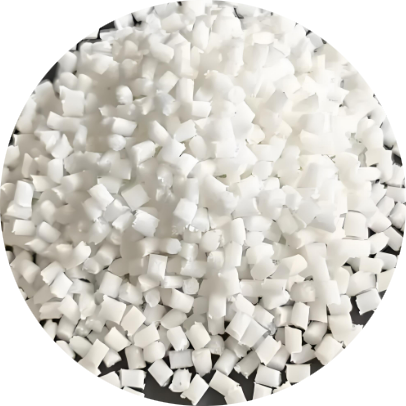Time to read: 6 min

Delrin, a high-performance acetal polymer, is a go-to material for rapid prototyping due to its exceptional machinability, strength, and durability. This comprehensive guide explores the unique properties of Delrin, its various grades, and how to select the optimal grade for your specific prototyping needs, ensuring a seamless transition from concept to functional prototype.
Introduction:
Rapid prototyping demands materials that can be quickly machined into precise parts. Delrin plastic, known for its stability and machinability, fits the bill perfectly. This guide will help you navigate the nuances of Delrin, ensuring your prototypes meet the highest standards of performance and quality.
Delrin's Properties for Rapid Prototyping:
Delrin's versatility makes it suitable for a range of applications, including CNC machining, injection molding, and 3D printing. Let's delve into its key properties that make it an ideal choice for rapid prototyping.
Electrical Insulation:
With excellent insulating properties and the ability to withstand electrical stress, Delrin is a top choice for electrical components, especially as a high-voltage insulator.
Mechanical Strength:
Delrin's tensile strength and high strength-to-weight ratio make it an ideal material for parts that need to resist significant stress while remaining lightweight.
Fatigue and Impact Resistance:
Delrin's resistance to fatigue and its ability to withstand sudden impacts without failure make it perfect for parts subject to repeated stress and impacts.
Dimensional Stability:
Delrin's dimensional stability ensures that it retains its shape during machining, simplifying the prototyping process.
Frictional Properties:
Delrin's natural slipperiness eliminates the need for lubrication in moving parts, an advantage in environments where external lubricants could cause contamination.
Considerations When Using Delrin:
While Delrin offers numerous benefits, it also has some limitations to consider in the rapid prototyping process.
Flammability:
Delrin's flammability requires the use of Class A fire extinguishers in case of a fire.
Heat Sensitivity:
Delrin parts may deform or melt under extreme heat, limiting its use in high-temperature environments.
Bonding Difficulty:
Delrin's resistance to chemicals makes it challenging to bond with adhesives, often requiring surface roughening before adhesive application.
Stiffness:
Less stiff than metals, Delrin requires thicker sections or regular support for large-span parts to prevent deflection.
Different Grades of Delrin for Prototyping:
Understanding the various grades of Delrin is crucial for selecting the right material for your application. Here are some grades to consider:
Delrin 150:
Known for its superior mechanical properties, Delrin 150 offers exceptional strength and rigidity, making it ideal for high-stress automotive and construction applications.
Delrin AF 100 (13% PTFE Filled):
Enhanced with PTFE, this grade offers improved durability and lubricity, making it suitable for metal replacement in high-durability applications.
Delrin (30% Glass Filled):
Glass-filled Delrin provides exceptional impact resistance and creep resistance, ideal for parts under constant high stress.
Delrin AF DE588:
Containing 20% PTFE fibers, this grade offers rigidity and strength, approved by the US Navy for submarine parts and suitable for high-stress environments.
Applications of Delrin in Rapid Prototyping:
Delrin's applications span across industries, from automotive to consumer appliances and electrical appliances, where its properties cater to a variety of needs.
How to Choose the Right Delrin Material:
Selecting the appropriate Delrin grade involves considering factors such as moisture absorbance, wear characteristics, the prototyping process, and the intended use of the part.
FAQs:
This section addresses common questions about Delrin's adhesive properties and its safety in food production, highlighting its certifications and suitability.
Conclusion:
Delrin's diverse properties make it a versatile material for various industries. By understanding the different grades and their applications, you can make informed decisions for your rapid prototyping projects. Unofactory offers a wide range of Delrin grades and expert advice to ensure you select the best material for your needs.




